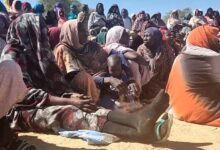Humanitarian lifeline for Sudan secured for three more months
 The top UN humanitarian official in Sudan has welcomed the Government’s decision to extend the use of the Adre border crossing, a vital conduit for humanitarian assistance, for an additional three months.
The top UN humanitarian official in Sudan has welcomed the Government’s decision to extend the use of the Adre border crossing, a vital conduit for humanitarian assistance, for an additional three months.
This extension in effect from Wednesday ensures that critical aid will continue to flow from Chad into conflict-affected regions of Sudan, particularly Darfur.
“Humanitarians in Sudan welcome this decision as the Adre border crossing is a critical lifeline for hundreds of thousands of vulnerable people across the country, especially in Darfur,” said Clementine Nkweta-Salami, the UN Resident and Humanitarian Coordinator in Sudan.
The war between the national forces of the military-led Government in Khartoum and the rival militia of the Rapid Support Forces erupted in April last year.
“Keeping the Adre border open means humanitarians can continue to deliver emergency food and nutrition supplies, medicine, shelter, and other life-saving assistance to hundreds of thousands of hungry, malnourished mothers and children, people suffering from diseases, and others that desperately need these supplies.”
The Adre crossing has proven essential in sustaining humanitarian operations amid the crisis in Sudan, driven by the brutal 19-month war between rival militaries.
Since it was reopened in mid-August, at least 377 aid trucks have traversed the border, carrying essential supplies that have supported approximately 1.4 million people facing acute hunger and the risk of famine.
Need for funds
Despite this crucial channel for aid delivery, the UN agencies continue to stress the urgent need for additional funding to maintain and scale up operations.
Into the final two months of 2024, the $2.7 billion Sudan humanitarian appeal is only 57 per cent funded. The shortfall poses significant challenges to sustaining relief efforts at the necessary scale.
Between January and September 2024, humanitarian agencies reached about 12.6 million people throughout Sudan with various forms of assistance.
However, with the conflict continuing unabated and driving needs across the region, increased funds remain critical to avert further humanitarian catastrophe.



